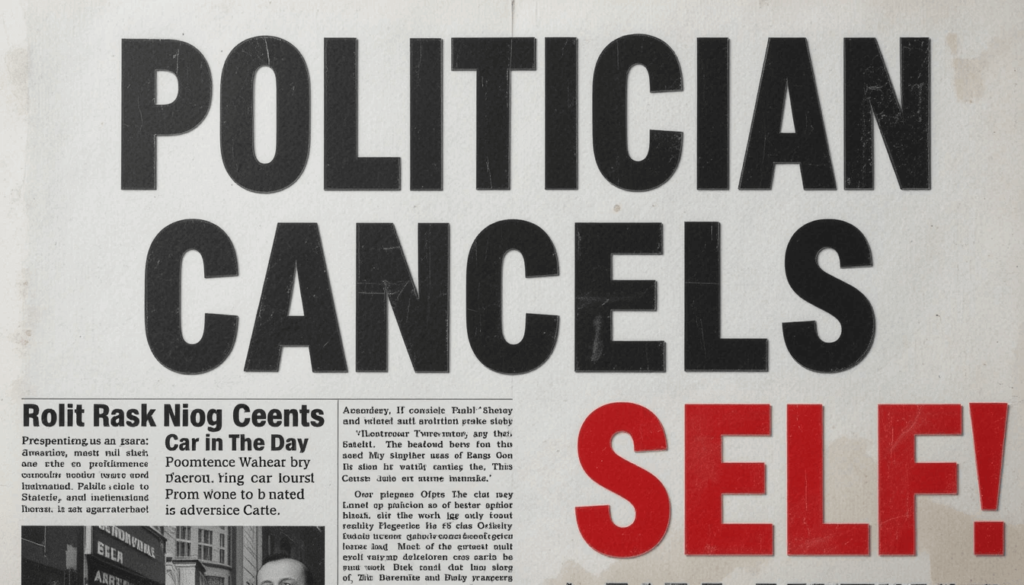In the age of cancel culture, political satire remains a powerful tool for commentary, but it’s walking a tightrope. Once celebrated for its biting wit, satire now faces scrutiny as audiences demand sensitivity alongside humor. This blog explores how political satire thrives (or stumbles) in today’s hyper-connected, easily offended world, offering insights into its evolution, challenges, and strategies for staying relevant.

Why Political Satire Matters in the Cancel Culture Era
Political satire has long been a mirror to society, exposing absurdities in power structures through humor. In the age of cancel culture, its role is even more critical—yet fraught with risk. Satire challenges narratives, sparks debate, and holds leaders accountable, but missteps can lead to public backlash or “cancellation.”
- Historical Context: From Jonathan Swift’s A Modest Proposal to The Daily Show, satire has shaped discourse.
- Modern Relevance: Satirists like John Oliver and Trevor Noah use humor to unpack complex issues, reaching millions.
- Risk Factor: A single tweet or sketch can ignite outrage, as seen in controversies like Shane Gillis’ 2019 SNL firing.
Outbound Link: The Atlantic
The Challenges of Political Satire in a Cancel Culture World
Navigating political satire in the age of cancel culture means dodging landmines. Here’s what satirists face:
1. Hyper-Sensitivity and Public Backlash
Audiences are quick to call out humor deemed offensive. Comedians like Dave Chappelle have faced criticism for pushing boundaries, yet their work often sparks meaningful dialogue.
2. Social Media Amplification
Platforms like X amplify outrage, turning a single joke into a viral controversy. For example, a 2023 X post mocking a politician’s gaffe led to a week-long debate, overshadowing the satire’s point.
3. Balancing Punchlines with Respect
Satirists must critique without alienating. Shows like Full Frontal with Samantha Bee blend sharp humor with empathy to avoid crossing lines.

How Satirists Adapt to Survive Cancel Culture
To thrive, satirists are rethinking their approach to political satire in the age of cancel culture. Here are key strategies:
- Know Your Audience: Tailor humor to resonate with specific demographics. For instance, Last Week Tonight uses data-driven comedy to appeal to informed viewers.
- Punch Up, Not Down: Target powerful institutions, not marginalized groups. This minimizes backlash while amplifying impact.
- Embrace Transparency: Acknowledge potential missteps upfront. Comedians like Hannah Gadsby weave personal vulnerability into their satire, building trust.
- Leverage Multiple Platforms: Use podcasts, X, and streaming to test material and gauge reactions before scaling up.
Data Insight: A 2024 study by Pew Research found 62% of Americans believe cancel culture stifles free expression, yet 58% want more sensitivity in humor—a tight balance for satirists.
Real-World Examples of Political Satire Done Right
Successful satire in the cancel culture era proves humor can still cut through noise. Here are standout cases:
- John Oliver’s Last Week Tonight: Oliver’s deep dives into issues like healthcare combine humor with facts, earning praise for being “informative yet funny.”
- The Onion: Its absurd headlines, like “Congress Approves $2 Trillion for Absolutely Nothing,” mock systemic flaws without targeting individuals.
- X-Based Satirists: Accounts like @TheBabylonBee thrive by blending irony with cultural commentary, though they’ve faced bans for edgy content.

Actionable Tips for Aspiring Satirists
Want to create political satire in the age of cancel culture? Here’s how to start:
- Research Thoroughly: Understand the issue and its nuances to avoid lazy stereotypes.
- Test Small: Share drafts on X or niche forums to gauge reactions before going big.
- Stay Authentic: Let your unique voice shine while respecting boundaries.
- Engage, Don’t Enrage: Invite dialogue with your audience to build a loyal following.
Outbound Link: MasterClass – Writing Classes
The Future of Political Satire in a Cancel Culture World
As cancel culture evolves, so will political satire. Emerging technologies like AI-generated content and decentralized platforms may give satirists new ways to experiment safely. However, the core challenge remains: balancing wit with wisdom. By punching up, staying informed, and embracing empathy, satirists can keep the art form alive and impactful.





